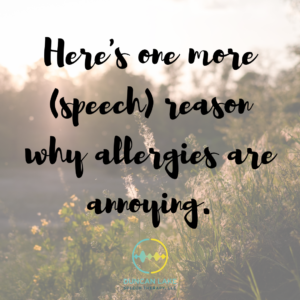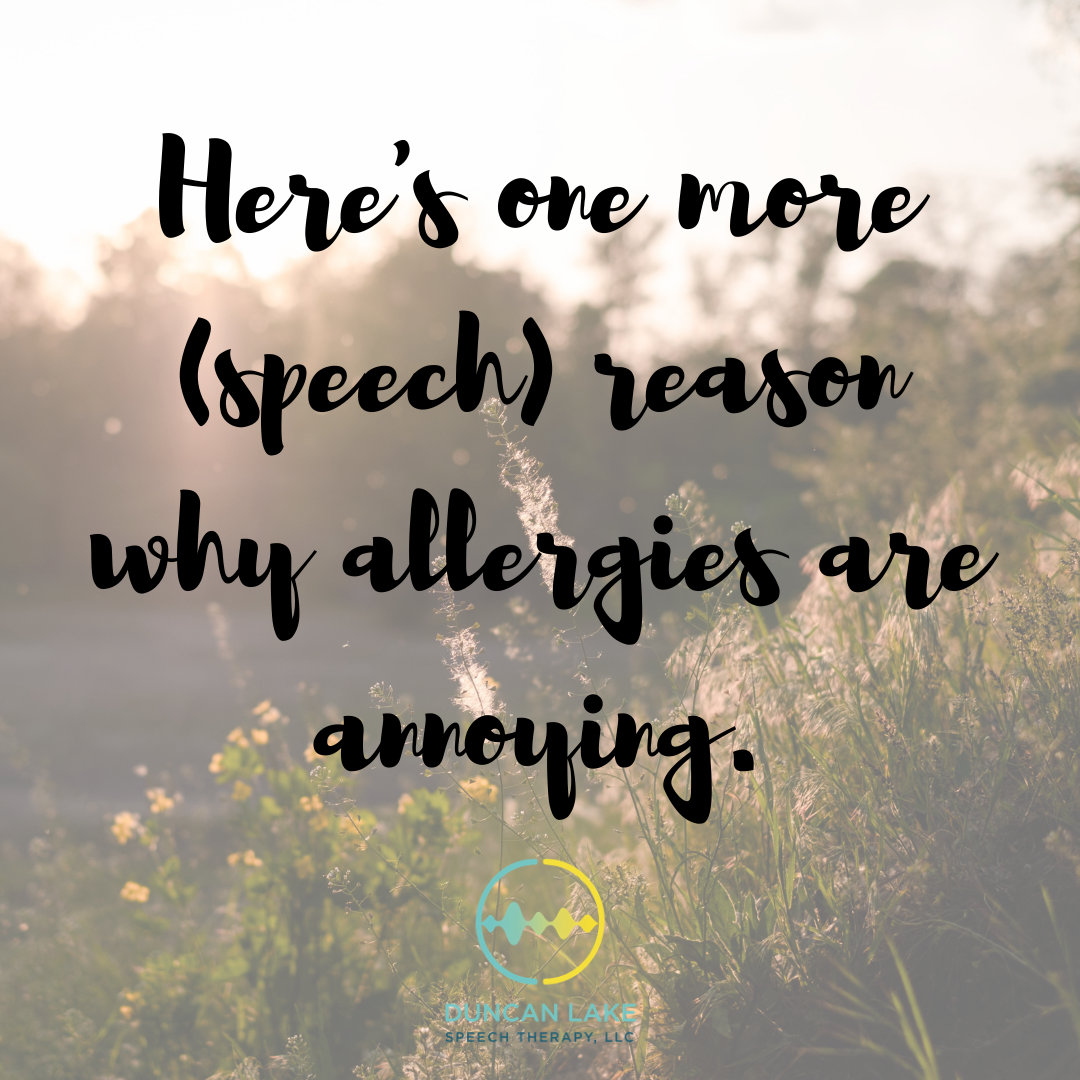Allergies, amirite?
Every September, Mother nature warmly welcomes me into her loving autumnal arms by giving me giant case of seasonal allergies. There is nothing quite like constant sneezing, coughing, and congestion, especially during a global pandemic (READ THE ROOM, MOTHER NATURE!), to really ring in the new season. As if this wasn’t annoying enough already, as it turns out, seasonal allergies impact our speech and hearing abilities. In fact, researchers even did a study on it. The study “found that current history of asthma and one-year history of hay fever and food allergy were significantly associated with increased risk of speech disorder.”
But…allergies? Speech disorders?! WHY?!

Let’s think about this from a vocal hygiene perspective. For me, the worst allergy symptom is throat irritation. I can live with a runny nose and sneezing, but an itchy, irritated throat is the absolute worst for me. Obviously, it’s uncomfortable, but it also causes me (and many people who experience this symptom) to do a lot of throat clearing. Constant throat clearing slams the vocal folds together over and over. The vocal folds become swollen and irritated as a result, making the environment ripe for vocal pathology. Hello, nodules! Hello, polyps!
Let’s think about this from a speech sound perspective. Allergies cause inflammation of our sinuses. They cause congestion. How many of you notice a significant change in the way you talk when your nose is clogged up? Ah ha! We make many of our sounds through our noses (we call these “nasals”). If our noses are blocked, then we can’t produce the sounds correctly, Plus, enlarged sinuses or tissues impact our articulation, or ability to produce all speech sounds accurately. For adults, this is typically not a problem unless you speak a lot for a living. For children who are young and learning how to produce their speech sounds, prolonged, untreated allergies can impact their articulation skills.
Constant congestion can also cause children to breathe with an open-mouth posture rather than through their noses. When this happens, tongues tend to not stay in their proper place. This can result in what is called a “tongue thrust,” or the tongue hanging out outside of the mouth. This can lead to articulation issues with sounds like /s/.
Let’s think about this from a hearing perspective. Congestion not only clogs up the ol’ sniffer, but also our ears. Typically, drainage flows out of our Eustachian tubes (canal connecting the back of our ears to our throat). When these get blocked, it causes the “plugged ears” effect. As we know, this makes it sound like we’re under water. To adults, this is super annoying. For children, however, this can have a pretty big impact on their speech and language skill learning.
Remember a while ago when I talked about the impact of multiple ear infections in children’s speech and language development? If a young child is walking around hearing the world as if they’re under water, they’re not going to hear the correct production of speech sounds. They’re not going to hear new vocabulary words clearly. They’re not going to clearly hear when their parents are giving them directions. As a result, their speech and language skills will be impacted.
All of this is to say that 1.) allergies are, indeed, the worst. 2.) it’s important to get those stinking allergies under control, especially for our kiddos. Reach out to your pediatrician for recommendations about how best to do that!



Recent Comments